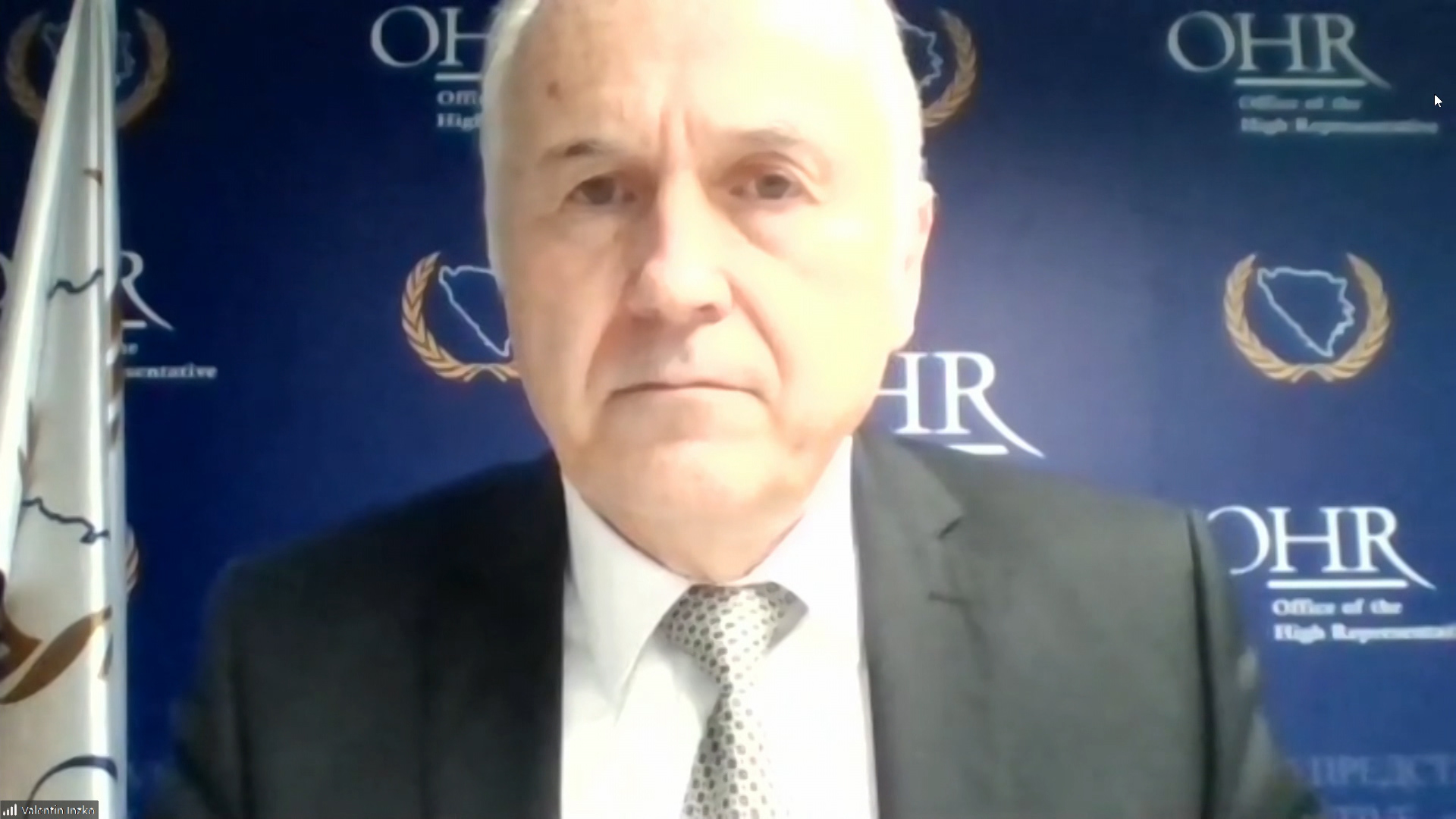BiH's intl. admin. says Christian Schmidt would be a good successor for his post

Bosnia’s international administrator, Austrian diplomat Valentin Inzko, told N1 on Thursday that his potential successor, German politician Christian Schmidt, is an experienced politician who is familiar with the situation in the country and argued that closing down the Office of the High Representative (OHR) is still not an option.
Inzko, who is tasked with overseeing the civilian implementation of the 1995 Dayton Peace Agreement, which ended Bosnia’s war and contains the country’s Constitution, said he is prepared to cooperate with his potential successor.
“I said in the German parliament that a large European country should be engaged and that Mr. Schmidt would be wonderful," he said.
“A breath of fresh air is always good, new ideas are always welcome. It’s nice if there’s a change in terms of the person (serving the post), but it is more important that there’s a change in policy,” Inzko said, but added that this is “beyond my competence.”
This is up to the Peace Implementation Council (PIC), a body composed of foreign ambassadors which oversee Bosnia’s peace process, he said, arguing that the United States is a member of it and that Joe Biden has not even been inaugurated yet.
Inzko said Schmidt was “an experienced politician who has been in the German parliament for 30 years and has been in BiH several times.”
"He met all the politicians from this region and he is a very nice gentleman,” he said.
The Austrian diplomat also commented on the work of the OHR since it was established, saying that the first 12 years were successful in terms of its activities as they resulted in the country adopting a new currency and a new flag, among other things.
After 12 years, however, the international community believed that it is time for the process to continue domestically, without increased international interference, he said.
"When I came to BiH in 2009, I received a piece of paper that said ‘close the OHR office as soon as possible’. When I saw the situation on the ground I said it was out of the question,” he said.
Inzko said he would inform his successor of everything that has been accomplished so far but that the necessary processes are progressing too slowly.
“One thing is fundamental for me, and that is the judiciary. If someone is not making any progress throughout 25 years, they cannot blame the Dayton Agreement for it,” he said.
The High Representative also criticised the fact that Bosnia’s semi-autonomous Republika Srpska (RS) entity marked the ‘Day of the RS’, which Bosnia’s Constitutional Court ruled is unconstitutional.
He touched upon the process of adopting a law on banning genocide denial in Bosnia, which he has been urging authorities to do for years. The draft law was prepared and forwarded to parliament he said.
“I think that domestic solutions are best. If this does not happen, then we will consider our next moves,” he said.
Kakvo je tvoje mišljenje o ovome?
Učestvuj u diskusiji ili pročitaj komentare





 Srbija
Srbija
 Hrvatska
Hrvatska
 Slovenija
Slovenija







